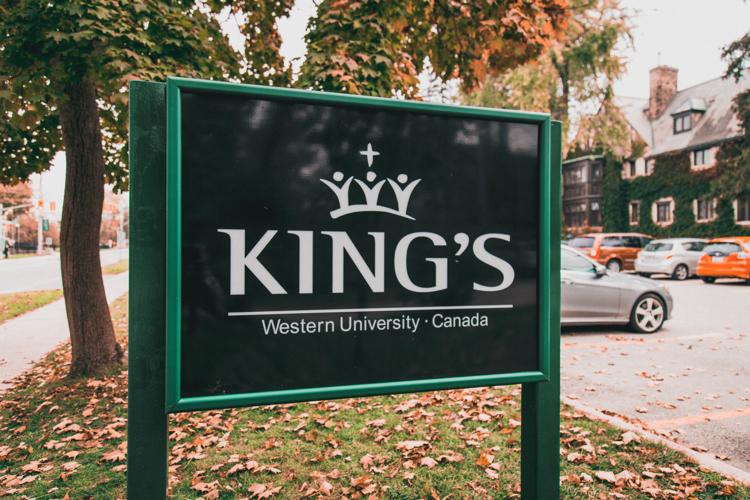
King's University College, Oct. 26, 2018.
King’s University College history professor Graham Broad published a book that shares the annotated diary entries of a Canadian soldier, Lieutenant Leslie H. Miller, who served in the First World War.
Miller joined the Canadian Expeditionary Force in 1914 and kept a diary of his training, deployment overseas and service on the Western Front.
Broad started preparing to turn the diary into a book, Part of Life Itself: The War Diary of Lieutenant Leslie Howard Miller, CEF, back in 2017, and it was published in November 2023 by the University of Toronto Press.
This type of book is a unique and rare piece of literature, as there are few remaining diaries from Canadian soldiers during World War One.
“There were about 600,000 Canadians in the First World War, and we know just over one per cent of them wrote diaries that still exist, and many of those are just fragments,” said Broad.
Broad worked closely with Miller’s family to provide important context and educational perspective with about 500 footnotes, indicating the people, places and events Miller is referring to in the text. But sometimes it was still difficult to identify people and places mentioned in the diary as well as to understand the soldier slang of the time that Miller used throughout his entries.
Miller was also a student at the University of Toronto at the time of his deployment — very few people attended university in Canada at this time, and even fewer were soldiers.

Front cover of Part of Life Itself: The War Diary of Lieutenant Leslie Howard Miller, CEF.
According to Broad, Miller’s higher education allowed him to have diverse intellectual interests that he discusses in his diary, such as observations of the natural world and his interest in theatre and travel. He was also a frequent reader during his off-hours, and he often spoke at the lectures he attended.
“All this incorporated into the diary gives a really interesting snapshot of a rather unusual soldier’s life,” said Broad. “And that, of course, is in addition to all the horrific aspects of the war that he recounts at times in very chilling detail.”
Broad hopes that people will read his book and gain an appreciation for the experience of Canadians in history. It is an opportunity for younger people to reflect on how people their age used to live in the World War One time period, he explained.
Apart from his service, Miller was known for gathering acorns from a fallen oak tree after the Battle of Vimy Ridge in 1917, and sending them to his family who planted the acorns on their family farm in Scarborough, Ont. — today the home of the Scarborough Chinese Baptist Church.
Acorns from these trees have been planted all over Canada, and a few of them are at Western University. The trees are called “Vimy Oaks” and three of them can be found on University College Hill.
Some of the original acorns were transplanted back to Vimy Ridge as there were no trees left there, explained Broad.
Broad’s book can be found for purchase on the University of Toronto Press’s website in either paperback or e-book format.








(0) comments
Welcome to the discussion.
Log In
Post a comment as Guest